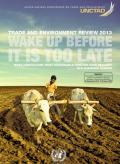Due to high carbon emission in production and low carbon emission in consumption, China is facing a severe test in economic development and carbon emission control. If the model of western developed countries is followed, it is likely that China will take the old road of high consumption and high emission while enhancing economic growth and living standard substantially. Therefore, a complete and systematic low carbon development pattern is very important to China. The core tenet of low carbon society is to coordinate the conflict between development and carbon emission reduction target. However, it does not emphasize only on the change of economic model but tries to create a completely new form of human society development through overall transformation of social mechanism, institutional design, regional planning and life style.

The transition to a low-carbon, resource-efficient Europe is a key objective of the EU as set out in the Europe 2020 Strategy, related Roadmaps and other strategic documents. Some EU Member States have already started to take steps towards this transition with the adoption of supporting political decisions and implementation of related instruments. These efforts are welcome and should be further encouraged. However, there are also contradictory decisions being taken or delays that hinder or slow down progress. Overall, despite some positive steps in a number of policy areas, further efforts are needed to create stronger momentum towards a low-carbon, resource-efficient Europe. Consideration of resource efficiency related issues (including resource productivity, municipal waste management, environmental taxation, reform of environmentally harmful subsidies, water and air quality) within the European Semester process should also be strengthened.
This study forms part of the European Commission’s on-going analysis of the opportunities to be gained from improving resource efficiency and how best to help businesses realise the economic potential, as well as environmental and social benefit. The study has examined the main resource efficiency measures available to EU business using a top-down review of literature on resource efficiency together with a bottom-up review of industry data and examples from case studies. Preliminary conclusions on measures were validated through limited industry consultation with EU-based businesses. The scope for businesses to improve resource efficiency has been assessed and the opportunity to business quantified through a business lens as new estimates of direct economic benefits. This research provides a new economic perspective to complement other published studies, a better insight into the impact on businesses of policies and programmes on resource efficiency, and an understanding of the relative effectiveness of resource efficiency measures and of the measures which might best suit particular businesses or sectors of the economy.
Climate change is becoming more evident and, as it increases, will alter the productivity of fisheries and the distribution of fish stocks. From an economic point of view, the changes will have impacts on fisheries and coastal communities in different ways. These expected changes require adaptable and flexible fisheries and aquaculture management policies and governance frameworks. However, the forms of future climate change and the extent of its impact remain uncertain. Fisheries policy makers therefore need to develop strategies and decision-making models in order to adapt to climate change under such uncertainty while taking into account social and economic consequences.
